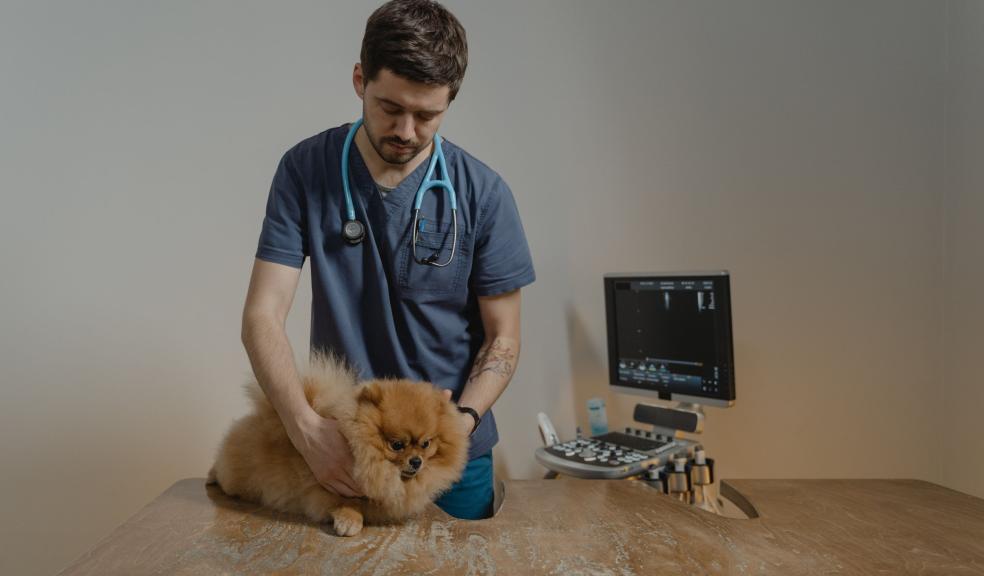
POORLY PETS: Uninsured owners face fees of £5000 with vet bills on the rise
New data from Admiral Pet Insurance has revealed the potential cost of vet treatments for the most common ailments, with costs up by around 7% in the last year.
It has released the data to ensure unsuspecting pet owners are aware of the possible fees they may face if they don't take out pet insurance, with accidental poisoning being one of the most expensive common conditions for veterinary services, with some treatments costing over £5,000.
Admiral has looked at some of the most common injuries and illnesses pets experience and has provided insight into average costs based on what it has paid for vet treatments in 2022. The insurer has included a range of costs, from basic medical care to major surgery, although precise fees vary around the UK.
The insurer's data reveals accidental poisoning of pets due to ingestion of toxic substances is one of the most expensive common causes for veterinary services with treatment ranging from £289 for examinations, monitoring and medication, to over £5,000 for more extensive treatment including a hospital stay for a dog. The most common toxic items eaten by pets are chocolate, grapes, sultanas and raisins for dogs and antifreeze, lily pollen and toxic household plants for cats. It's one of the most expensive accidents because emergency treatment is necessary in most cases, often requiring a visit to the out of hours vet.
Another common condition which could be costly is lameness, an inability to properly use limbs, with treatment ranging from £120 for a consultation and medication to £3,800 for surgery and aftercare.
The removal of lumps and bumps on a dog could start at £454, rising to £2,000 where poorly pets have had to undergo chemotherapy following tumours.
Admiral has also shared some information on the cost of claims it has received from pet owners, including a cat who needed complicated elbow surgery, which would have cost the owner £4,000 had they not been insured. A dog that suffered a fracture to its foreleg which had to be amputated, totalling £2,240, and a Pointer who had a severe gut reaction to a parasitic infection, whose treatment came to £3,150.
The range of costs for common conditions needing vet treatment:
|
Most common condition highest to lowest |
Condition |
Treatment cost range |
Range of potential treatment needed |
|
1 |
Gastrointestinal issues |
From £124 - £3,150
|
Treatment could include a consultation/exam and medication, to a dog requiring treatment for a severe gut reaction to a parasite infection |
|
2 |
Skin wounds/infections
|
From £141 - £975 |
Treatments including a simple skin tear, or sedation and stitches to cleaning infections, testing, medication and monitoring |
|
3 |
Lameness
|
From £120 - £3,800 |
From an initial consultation and medications, to full general anesthetic and cruciate ligament surgery and aftercare |
|
4 |
Lumps and bumps
|
From £454 - £2,000 |
Fatty lump removal under GA, to chemotherapy and surgery following a bone tumour |
|
5 |
Accidental poisoning/ ingestion of toxic substances |
From £289-£5,313 |
From consultation and medication, to lengthy hospital stays, testing and IV fluids |
|
6 |
Eye issues
|
From £60 - £1,628 |
From medication for conjunctivitis, to a full GA and 3rd eyelid surgery |
|
7 |
Limb fractures |
From £220-£4,000 |
Treatment could involve an initial assessment, x-ray and medications, to further GA and complex elbow surgery or amputation |
|
8 |
Ear infections
|
From £100 - £785 |
From consultation and medication, to a dog requiring full sedation, procedures, laboratory tests and medications. |
|
9 |
Lethargy/not being self
|
From £300 - £730 |
Treatment could involve multiple tests to rule out conditions |
Dispelling 'two price' and pet plan myths
Admiral warns some people are making the mistake of not taking out pet insurance as they believe they are covered by vet healthcare plans. The insurer wants to make sure customers are better informed about the need to take out pet insurance, and that they understand that healthcare plans are not a substitute for insurance cover.
Pet insurance policies cover unexpected events, so you are likely to be covered for accidents or illnesses and they usually include a certain amount of vet fees as standard. This could include consultations with a vet, medication, surgery and examinations including X-rays, MRI and CT scans.
Healthcare plans provide vaccinations, pest treatments and health checks. They may also offer discounts on vet care and medication but usually won't cover for accidents or illnesses. Admiral has created a guide to what pet insurance covers which can help anyone in doubt.
Why are costs increasing?
Pet insurance experts at Admiral have shared the reasons why the costs of vet treatments have risen by around 7% year on year. An increase of vet's overheads and supplier costs, and difficulty sourcing medications and importing them quickly from the EU have all contributed to rising prices. Admiral Pet Insurance says that veterinary staff levels have also decreased so the provision of qualified staff is becoming more expensive.
Pritpal Powar, head of pet at Admiral Insurance, comments:
"Vets do an amazing job treating our sick and injured pets, but like many businesses they have seen an increase in their overheads. We've seen vet fees rise by around 7% over the last year, so owners whose pets are not insured could be in for a surprise if they have to make a trip to their local vet. Prices vary from region to region, but when looking at the typical fees we have paid, there's no doubt that costs are going up.
"We're also concerned that some people are under the impression that pet health plans are a substitute for insurance. We've had a few situations where owners have been wrongly under the impression that the pet health plans will cover treatment costs, but this is not the case.
"It's also important to understand that vets do not charge two different rates to pet owners who have insurance and those who don't. Having pet insurance gives you more options in case your pet does need treatment than if you had to pay yourself.
"For many of us, pets are a big part of the family. If your pet is unwell and needs a trip to the vet, having cover means you'll have one less thing to worry about so you can focus on helping your pet when they need you the most."







